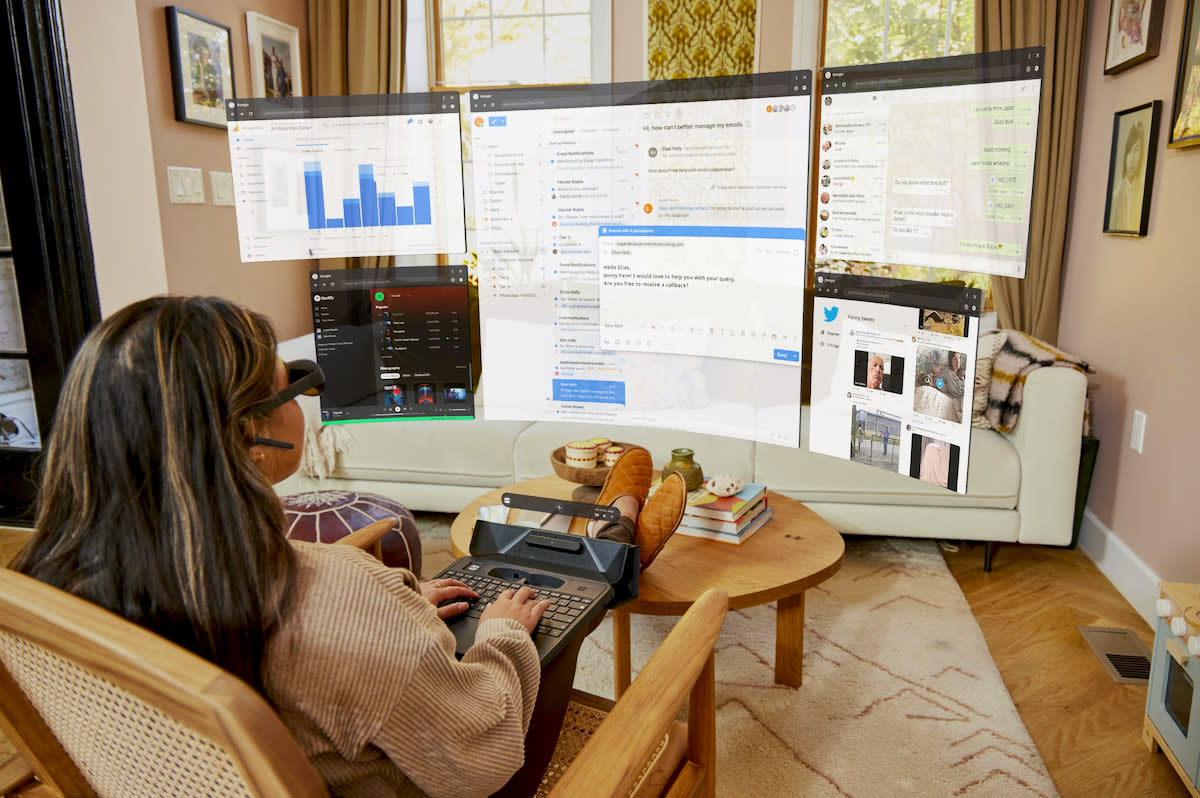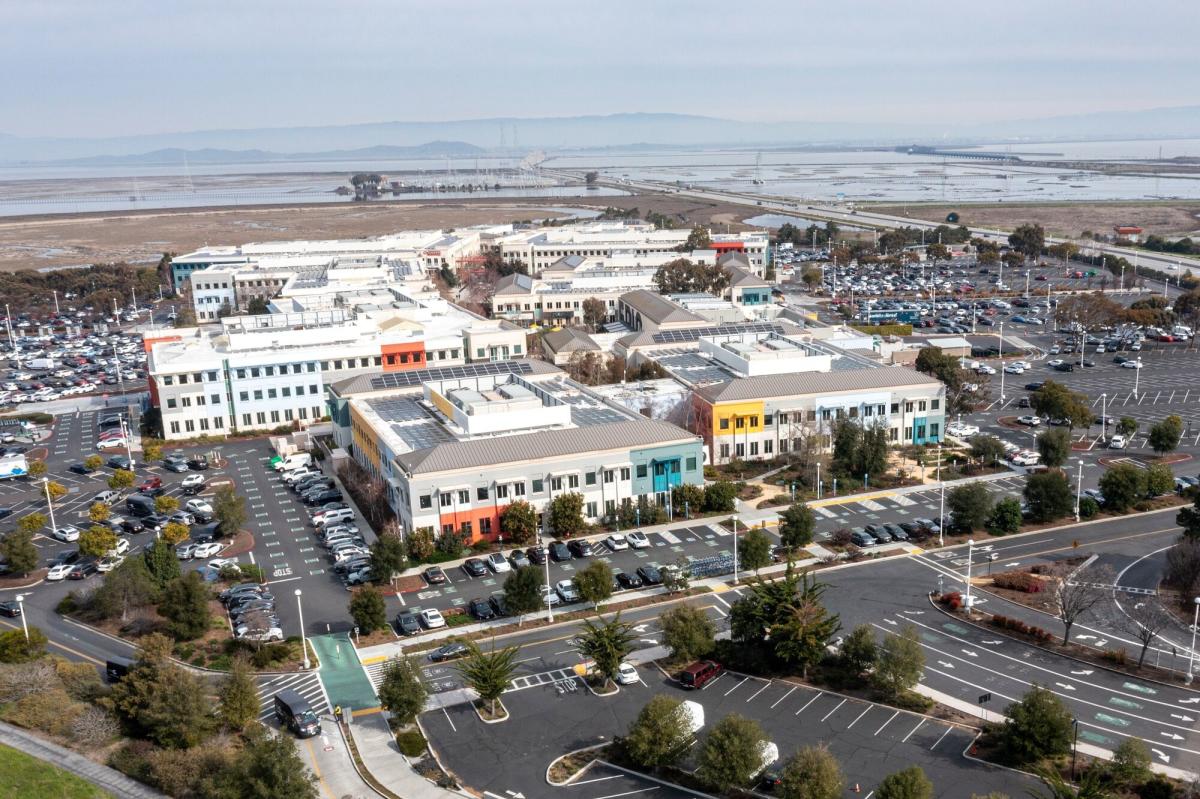.
??? Not interested to know his view.
.
??? Not interested to know his view.
The dude looks old. People who made their career by spending more hours in the office than everyone else are having a mental meltdown over WFH. WFH makes it about performance instead who spends the longest hours in the office.
You didn’t know?

Explore FFND for FREE on ETF Database: Price, Holdings, Charts, Technicals, Fact Sheet, News, and more.
@manch these ppl are all totally wrong. I was expecting especially you to support WFH
My take on WFH is a bit nuanced. First off, I think it depends on both the companies and the employees. Second, it depends on how much WFH we are talking about. Is it 100% remote? Or hybrid?
Most established companies can do 4-day in person and 1-day WFH hybrid no problem. Or even 3-day in person 2-day WFH. It won’t affect the existing workflow all that much. Many in tech were already doing that pre-Covid. Things just got formalized post-Covid.
To go fully remote a company needs to retool its workflow and culture. Most older companies, even those in tech space like Apple and Google, can’t easily make that change. Companies that deal with fuzzy ideas like startups need more communication bandwidth than remote work offers. So full remote won’t work for these companies either. It will work most well I guess for tech companies in the 5-10 years old age band. More established, work more clearly defined, but also has the agility to retool their workflow to take advantage of remote flexibility.
The company I work for still has no back-to-office requirement (completely voluntary). There are a bunch of us who come to office often and we joked that we are all social losers who don’t have a life outside of work. It’s true to some degree.
On the other end of the extreme, I recently bumped into a coworker in the office break room and we chatted. He hasn’t set foot in the office in 3 years. But he also has not set foot outside of his house much in the past 3 years. He works in his basement, his wife at the first floor and his daughter works on the second story. I got the impression he hasn’t spoken to anyone outside of his family in the 3 years. He seized the opportunity in the break room and wanted to talk me to death. After listening to him for 15 minutes I had to excuse myself for an upcoming meeting in order to get out.
"You can't tell me this doesn't work," Kevin O'Leary said. "In fact, I want to do more of this because I'm reducing my costs of real estate."

AR glasses project your workspace into the air in front of you..
Reads like common sense to me but maybe a shock to some.
 Flo Crivello – 22 May 23
Flo Crivello – 22 May 23
This is a memo I sent to the Lindy team last month, with slight edits. Thoughts on Remote I’ve made a 180º on remote. I think everyone here can attest to the fact that we tried harder than anyone else. And I’m more bummed out about it than
I’ve made a 180º on remote. I think everyone here can attest to the fact that we tried harder than anyone else. And I’m more bummed out about it than anyone.
Remote is more comfortable from a lifestyle standpoint. You save on commute, have your own office, can work from anywhere, and get more flexibility on your schedule (especially important for folks with families).
But it makes it harder for a startup to succeed or find product / market fit. That’s especially so if you’re building something very new, like we are doing.
The rest reads like a love letter to San Francisco. Again reads like common sense to me but so many are in denial:
Q: But aren’t there a ton of homeless people / crime / drugs in SF?
A: SF is pretty bimodal. Its bad neighborhoods are really bad, the rest is just like any normal city.
So the “average” isn’t meaningful — it’s very understated if you’re in the wrong parts of town, and very overstated if you’re anywhere else.
The solution is to just avoid the bad parts! That’s SOMA and the Tenderloin, mostly. Outside of them, SF is a great city. Tons of parks and natural beauty, sunny year round, amazing food, and super walkable.
Q: What about the taxes?
The top marginal tax rate in California is 13%. So as long as you make 15% more by being here, SF pays for itself.
In my experience, folks make a lot more than 15% more by moving here. You should expect 100-300% more, over the course of your career.
Striking to protest against layoffs. Interesting concept.
Some Amazon employees in Seattle plan to walk off the job to show their frustration with recent layoffs, return-to-office mandates and a lack of action to address the company’s impact on climate change, organizers said.
Problem is I don’t know where are SOMA and Tenderloin ![]() So, just avoid SF.
So, just avoid SF.
15% is ok, whoever say this is a linear thinker ![]()
CEO AMZN is so glad that there are voluntary resignation.

“The key takeaway from our analysis is that remote work is shaping up to massively disrupt the value of commercial office real estate,” they wrote.
If they are that upset about it, they can quit and go work for a company with a better carbon footprint. I’m always amazed by employees that demand top-tier compensation packages while expecting the company to operate with the values of a non-profit. There’s a reason the company can afford those compensation packages. Does anyone think they’d all agree to a pay cut if the company re-invested that money in reducing the carbon footprint?
Bloomberg: Meta Tells Office Workers to Come In Three Days per Week This Fall

(Bloomberg) -- Meta Platforms Inc. is asking employees assigned to an office to come in three times a week beginning in September, according to people familiar with the matter, joining a clampdown on remote work in the tech industry.Most Read from...

"This is seemingly a power move that is frankly disgusting.”

Google's HR chief told workers that office attendance will be more closely monitored
This should be a good thing for the stock. It means the company is watching its bottom line and wants to cut waste. I am not saying working remotely is a waste, just that the company is actively working to reduce waste.

The data showing that remote workers spend fewer hours working, less productively, is really starting to add up.